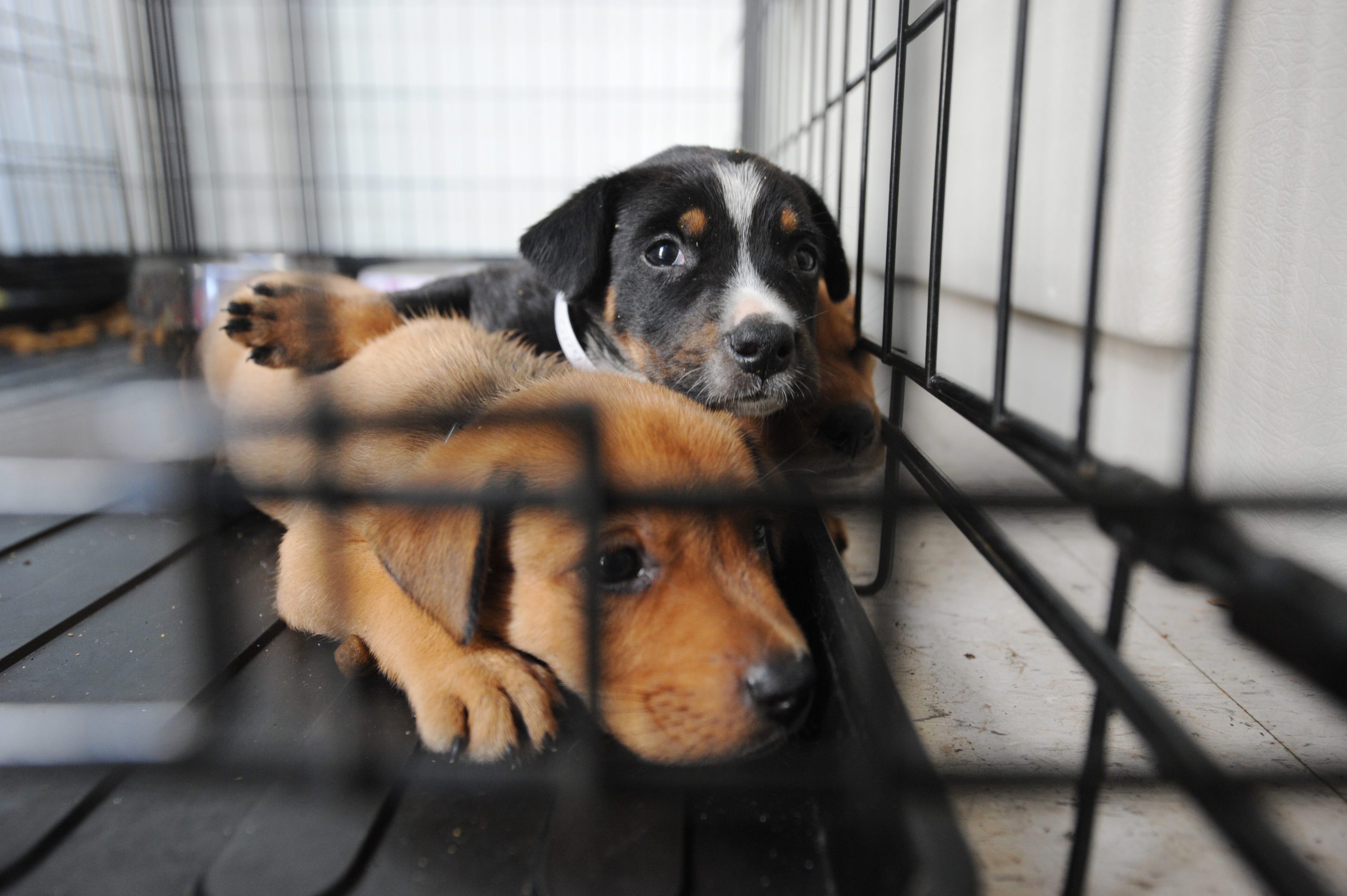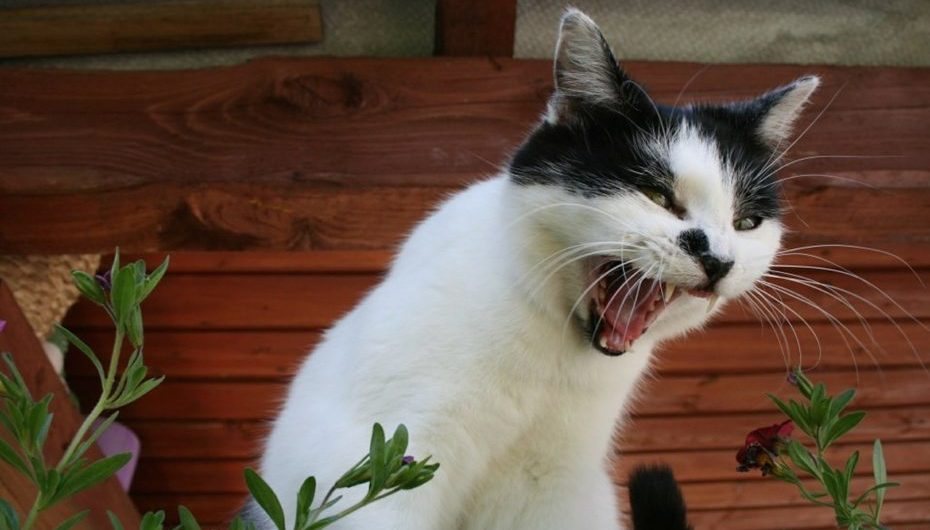Top Questions About Pet Poisoning
Did you know that poisoning is one of the most common reasons for emergency visits? The data on this is quite terrifying. Every year, more than 401,500 incidents of pet poisoning are reported in the United States alone. In this article from All About Animals Veterinary Services, your Carrollton, GA pet hospital, serving the Villa Rica Area area, a local veterinarian discusses common toxins while also providing suggestions and instructions for keeping your animal companion safe.
Are Poisoning Concerns The Same For Dogs And Cats?
Yes, and no. In most cases, everything harmful to Fluffy is dangerous to Fido, and vice versa. However, they have diverse physiologies, proclivities, and behaviors, thus there are some distinctions.
Cats may be more susceptible to illness due to spilled liquids or simply having something come into contact with their fur. Fluffy’s skin is highly sensitive and readily absorbs chemicals. She is also quite particular about grooming herself, which puts her in greater danger of licking something off her fur. However, Fido can also lick dangerous materials from his paws, and ingest things that way.
Another difference? Our canine companions will eat and chew nearly anything. Some dogs outgrow this when they finish teething, but others chew long into adulthood.
What Should I Do If I Suspect My Pet Was Poisoned?
This is not just a ‘wait and see’ scenario. It is critical to act quickly; your pet’s life may depend on it.
First, consult your veterinarian. If it’s after hours, call an emergency clinic. You may also contact a pet poison helpline. There are a few options. The ASPCA’s phone number is (888) 426-4435. (Charges may apply.) Fido or Fluffy will require emergency veterinary care, but you would want to contact the clinic ahead of time so that we/they can plan accordingly.
You may also be instructed to use first aid supplies such as hydrogen peroxide. Follow the recommendations exactly, and do not administer anything unless directed to do so by your veterinarian or a poison hotline representative. Doing the wrong thing could be more dangerous than doing nothing!
What Are the Telltale Signs of Poisoning in Pets?
The particular symptoms will vary depending on the type and amount of poison consumed. There are a few frequent ones to be aware of, though.
Some instances include the following.
- Vomiting
- Diarrhea
- Respiratory issues
- Coughing
- Drooling
- Seizure
- Twitching
- Staggering
- Lack of appetite
- Fever and thirst.
- Abdominal Pain
- Bloating Collapse
- Shock
- Weakness during coma.
- An elevated pulse
- Lethargy
- Excessive urine production
Behavioral changes might sometimes function as a warning indication. When cats become ill, they typically isolate themselves. Dogs can also appear depressed. Grumpiness can also be a warning sign in certain pets.
Keep in mind that these indicators can suggest a range of issues. If you detect anything suspicious or strange, contact your veterinarian right away.
Are Essential Oils Harmful To Pets?
Aromatherapy is often included in people’s health and wellness regimes. Pet owners should use these oils with caution. Many are very concentrated, making them potentially hazardous.
Here are some of the riskier ones:
- Cinnamon
- Teatree Oil
- Citrus Oils
- Pennyroyal
- Peppermint
- Ylang Ylang
- Pine
- Sweet Birch
- Clove
- Anise
- Wintergreen
- Juniper
For more information, contact your veterinarians.
Are Salt Lamps Harmful To Pets?
Actually, yes! Some animals like the taste of salt. Fluffy and Fido may obsessively lick the lamp, putting themselves at risk of salt poisoning. That is not to say you cannot have one; simply keep it out of reach of your animal companion.
What Foods Are Toxic To Pets?
Many popular foods are harmful to Fido and Fluffy! This list consists of the following:
- Anything containing Xylitol (Birch Sugar)
- Mushrooms
- Caffeine
- Alcohol
- Avocado
- Grapes
- Raisins
- Currants
- Garlic
- Onions
- Scallions
- Chives
- Several nuts, including macadamia nuts.
- Chocolate
That is the list for cats and dogs. However, most of the items on it are unsafe for most, if not all, pets. For more information, or to get a list for a bird, exotic, or pocket pet, speak with your veterinarian.
Which Common Household Products Are Toxic to Dogs and Fluffy?
You may be surprised at how many everyday household items can be dangerous to your beloved pet. As a general rule, everything that would be unsafe for a youngster may endanger your four-legged friend.
Here’s a brief list:
Cleaning Agents: All household cleaning agents should be considered toxic to pets. Bleach, disinfectants, furniture polish and oil, detergent, drain openers, mold killers, and other products are a few examples.
Medication: Aspirin, acetaminophen, and nonsteroidal anti-inflammatory medications (NSAIDs), including ibuprofen, are among the most dangerous. Fido and Fluffy should not have access to over-the-counter or prescription medications.
Auto Products: Antifreeze is among the most hazardous substances. Many of these goods have flavors that pets like. Choose a pet-friendly brand. (It is still harmful for pets, but it is less appealing to them.) Gasoline, oil, lubricants, paint, cleansers, and wiper fluid all provide additional risks. Keep your pet away from locations where you have used chemicals, rodenticides, or pesticides, and promptly clean up any spilled antifreeze or chemicals. Clean up spills with sand or kitty litter.
Pesticides: Bug spray, rodenticides, mouse and rat bait—anything designed to kill insects will be hazardous to your cherished pet. Many rodenticides contain the anticoagulant warfarin. If swallowed, this can cause significant, even fatal, internal bleeding. The list also includes flea and tick remedies. These are safe to use in the manner advised. However, doubling up or giving the incorrect dose may put your pet at risk of toxic levels of ingestion.
Lawn/Garden Products: These are particularly harmful because Fido and Fluffy only need to walk across a recently treated area and lick their paws or fur. Slug or snail bait is very harmful to dogs. Metaldehyde, a chemical prevalent in numerous brands, is the source of the problem here. Fertilizers, fungicides, weed killers, and herbicides are also highly poisonous. Keep your pet out of recently treated areas. Also, after treating an area, make sure to soak it. This helps ensure that chemicals drain into the soil.
Which Houseplants Are Hazardous to Fido and Fluffy?
Many pets enjoy chewing on plants. That can be adorable, but it can also be really hazardous. The complete list of hazardous plants is too long to provide here, so we’ll concentrate on the most prevalent ones.
Lilies are among the most toxic plants for cats. Even in small amounts, they are deadly to kitties. Fluffy merely needs to nibble a leaf or drink a small amount of water to become ill. Fido is particularly sensitive to Sago palms.
Here are some of the toxic ones:
- Peonies
- Tulips
- Daffodils
- Hyacinth
- Oleander
- Amaryllis
- Lilies of the Valley
- Azalea
- Rhododendron
- Crocus
- Cyclamen
- Chrysanthemum
- Ivy
- Sago Palm
- Foxglove
- Lilies
- Irises
- Hydrangea
- Holly
In general, anything containing a bulb is hazardous. Tulips, daffodils, onions, and garlic are a few examples. The ASPCA website contains additional information about safe and dangerous plants here.
Remember that even non-toxic plants might pose a threat. Roses, for example, contain sharp thorns that, if consumed, can cause serious inside harm. Your furry pal could also knock a plant over onto themselves, though that’s of course more of a general mishap concern than a poisoning issue. Consult your Carrollton, GA veterinarian for more information.
Schedule an Appointment at Our Carrollton, GA Pet Hospital
Are you concerned for your pet’s health, safety, or care? We are always pleased to assist! Please contact All About Animals Veterinary Services, your Carrollton, GA pet hospital, serving the Villa Rica Area area, anytime.



